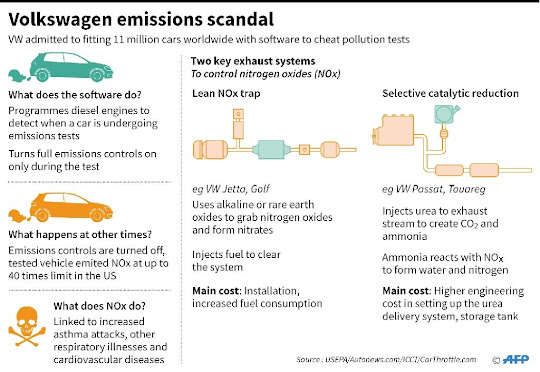Yahoo – AFP,
Sam Reeves, 15 Oct 2014
 |
Children
residing in the slum area play along a dyke as construction of the
Jakarta sea
wall begins, October 9, 2014 (AFP/Photo By Romeo Gaca)
|
Jakarta has
launched a multi-billion-dollar scheme to build a huge sea wall to combat
flooding as the Indonesian capital sinks, but there is scepticism about its
chances of success in a country with a history of corruption and failed
megaprojects.
The
35-kilometre (22-mile) wall, across the Bay of Jakarta off the city's northern
coast, is the centrepiece of a project that will cost up to $40 billion over three
decades, and also includes reclaiming land for 17 new islands.
The whole
project will form the shape of a Garuda, the mythical bird that is Indonesia's
national symbol.
 |
Children
residing in the slum area play
along a dyke as construction of the
Jakarta sea
wall begins, October 9,
2014 (AFP/Photo By Romeo Gaca)
|
Supporters
of the project, which officially got under way last week and is run by the
Indonesian government with help from Dutch experts, say it is the only
long-term solution.
"It's
a life-and-death situation," said Purba Robert M. Sianipar, a senior
economics ministry official with a key role in the project, adding hundreds
were at risk of losing their lives from severe flooding if action was not
taken.
However,
some wonder whether such an ambitious plan will ever be completed, given
Indonesia's bad record on infrastructure projects, such as plan to build a
monorail in Jakarta that was embroiled in a storm of corruption six years ago.
Chief
Economics Minister Chairul Tanjung suggested as much at last week's launch
event, saying disagreements with future governments could knock the project off
schedule.
Others
question the approach entirely, saying the project will not stop the city from
sinking, while graft is also a major danger, with officials sometimes awarding
tenders to unsuitable firms in exchange for large kickbacks.
Jakarta has
long been hit by floods during the rainy season, when tropical downpours cause
rivers to burst their banks and deluge inadequate drainage systems, forcing
tens of thousands out of their homes.
 |
Residents
gather along a dyke in Jakarta
as construction of the Indonesian capital's
sea
wall begins, October 9, 2014 (AFP/
Photo By Romeo Gaca)
|
Rivers
could stop flowing
Slum
neighbourhoods were inundated when a high tide surged over sea defences in
northern Jakarta, something that had never happened before and which
highlighted the severe land subsidence in many areas.
As Jakarta
has rapidly grown to a population of about 10 million, increased water
extraction for drinking has caused the ground to compact and parts of the city
to sink, a problem seen in other coastal conurbations, such as Ho Chi Minh City
and Bangkok.
Parts of
coastal north Jakarta, which is built on soft clay, are sinking as fast as 14
centimetres (5.5 inches) a year, meaning they could be metres below sea level
in a few decades, according to those behind the sea wall project.
"Basically
we are pumping ourselves into the ground," said Victor Coenen, from Dutch
consultants Witteveen and Bos, which devised the master plan for the project.
The
subsidence also means the 13 rivers in Jakarta may sink below sea level and
stop flowing, increasing the risk of inundations.
After the
2007 floods -- which forced hundreds of thousands out of their homes --
officials scrambled to come up with a plan.
It involves strengthening the current, low sea defences over the next few years to provide temporary protection for north Jakarta, home to more than four million people.
It involves strengthening the current, low sea defences over the next few years to provide temporary protection for north Jakarta, home to more than four million people.
 |
A wall of
giant iron reinforcement pipes is installed during the construction
of the
Jakarta sea wall, October 9, 2014 (AFP/Photo By Romeo Gaca)
|
Work will
then begin on the main wall, which will sit six to eight kilometres (four to
five miles) from the coast and will be seven metres (23 feet) above sea level.
Construction
of the wall will be finished between 2025 and 2030, while development on the
islands -- which will have a mix of high-end and low-cost housing -- could take
another decade.
A huge
reservoir will be created between the islands and sea wall, where water from
downpours can be stored so it does not flood the city, and into which rivers will
be able to flow freely.
Plans are
also in progress to slow the land subsidence by providing piped water to
Jakarta from other areas and stop extraction of ground water.
Related Articles:
Groundbreaking event starts work on Jakarta's ambitious 40 billion coastal development NCICD project
 |
| Draft of the Master Plan for National Capital Integrated Coastal Development. (JG Screen Grab courtesy of the website of the Coordinating Ministry of Economic Affairs) |







No comments:
Post a Comment